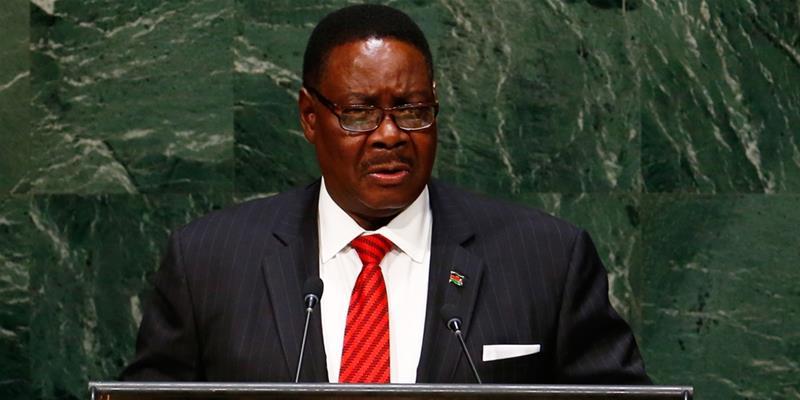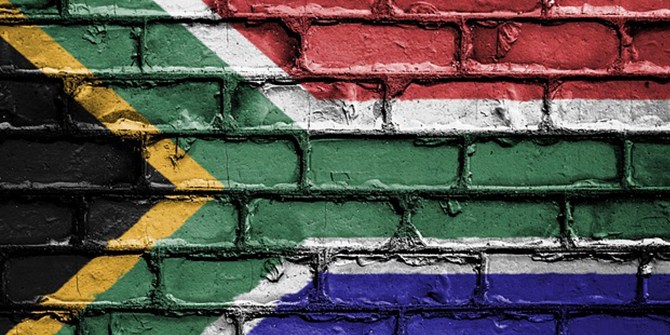News
Mutharika gets re-elected in Malawi's Tipp-Ex election
Malawi's challenge — and that of President Peter Mutharika, the second time around — is to commercialise and diversify, to start to build an economy that will provide jobs for a burgeoning population.

The results of Malawi’s May 21 election have been clouded in controversy and legal theatre. The three-way fight between Vice-President Saulos Chilima, Reverend Lazarus Chakwera of the Malawi Congress Party, and the incumbent Arthur Peter Mutharika’s Democratic Progressive Party was, according to the official results released on 27 May 2019, resolved in favour of Mutharika who won by 38% to Chakwera’s 35.4%.
Malawians survive today on an average per capita income of just US$420, just twice that at independence in 1964. It was then among the five poorest countries worldwide. It is now the sixth-poorest.
Continued poverty reflects Malawi’s population increase from under four million in 1964 to 19 million now. In fact, GDP has increased by 10 times in real terms since 1964, though the population rise has nixed half of the gain. The population has expanded faster than opportunities.
These are the averages. Many of the 2.5 million farmers countrywide earn little more than US$75 a year. Malawi’s 2010 poverty rate was 71%, an increase from 64% in 1997. Many citizens fail to obtain their daily calorific requirements.
The elites, as ever, suffer less, cocooned from the harsh realities of rural poverty by access to government contracts and largesse, and by a steady trickle of aid money.
Today more than half of Malawians are under 18. The projection of a 45 million-strong Malawi population by 2045 should not, on the current development trajectory, offer cause for optimism.
Despite the grand-sounding policies and strategies regularly trumpeted by successive Malawian governments, there are several fundamental disjunctures which cause the Central African nation to remain stuck at the bottom of the development and poverty barrel.
The first is that between policies, which sound about right, and implementation, which is routinely as weak as the institutions which are supposed to execute them. There has, moreover, been little serious debate in Malawi about the centrality of productivity and growth to underpin development. There is much talk about distribution, but not on how to ensure the surplus necessary for this to occur, at least sustainably.
The second disjuncture is to do with the role of aid.
Donors give almost as much money annually (US$1.1-billion) as the budget (US$1.5-billion). Yet the impact of donor spending is diffused, in part because they’re not tough enough on governance failings and in part because of a focus on a large number of projects.
It’s difficult to make an impact and not distort the incentives, too, when the will of Malawians to reform is weak. But the institutional self-interest and human urge to donate is seemingly often stronger, even in the face of egregious government, than the disincentives for foreign charities not to spend. It’s cool and enriching, apparently, saving Malawians from themselves.
The third and most critical disjuncture is between elite attitudes and mindset in government and the core problems of poverty, corruption, monopolies and a lack of diversification which lies behind joblessness. The incentives for control and privilege trump those for change and growth. Malawi is a country where monopolies and vested interests rule.
At one level this helps to explain the brazen irregularities around the election. The maths was always going to be difficult for Mutharika who, while he dominates the south, is hugely unpopular in the central region, the home-turf of the MCP. He was no doubt helped by Chilima splitting the opposition vote.
But the heavy use of Tipp-Ex on some result sheets exposed in the media may be a tell-tale sign of a lack of respect for electoral niceties. Whatever the veracity of these allegations, the majority of Malawians who voted with Chilima and Chakwera will read it as such.
At another, it clarifies why as much as 80% of export and import traffic is carried by road, despite the comparatively high costs, and why the railway system remains precarious and irregular, yet so critical in this landlocked nation.
The connections of politically exposed persons with trucking firms is whispered as the most likely reason. The preference for a small, preferential internal market for a protected elite helps too to explain why the country has failed fundamentally to open up properly to richer external markets in its trade policy and logistics practices.
Malawi’s challenge – and that of President Peter Mutharika, the second time around — is to commercialise and diversify, to start to build an economy that will provide jobs for a burgeoning population.
To do this, he is going to have to shore up his shaky political legitimacy by bold economic policy changes, made not in the interests of the opportunists who have buzzed around his office for the past five years, but instead in undoing the monopolies which dominate the economy. The upsides would be obvious, and huge in such a poor country.
To date, President Mutharika has shown no sign of the necessary appetite for such change. He may yet surprise. Hope, as ever, dies last.
This article originally appeared on The Daily Maverick.



